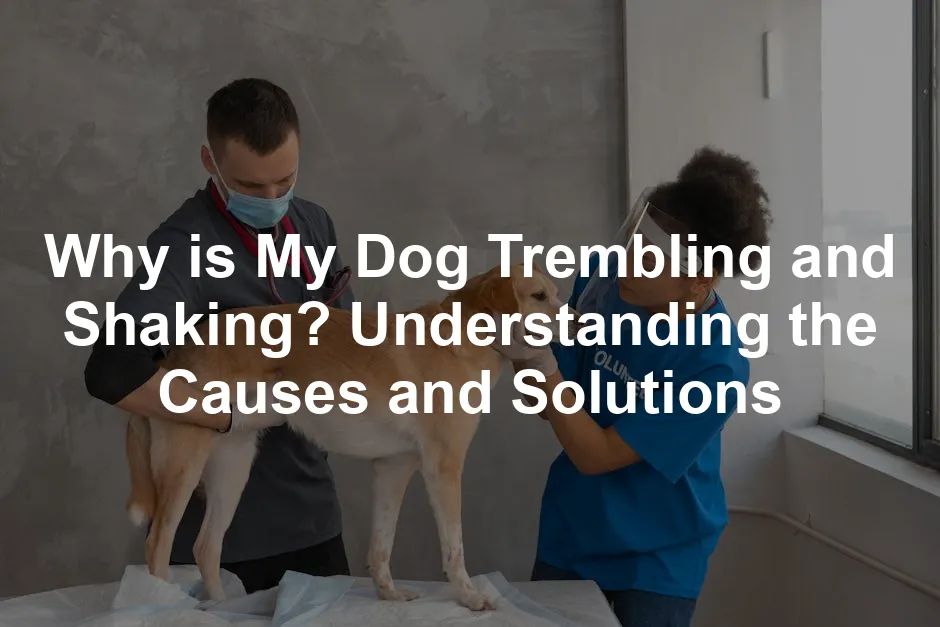
Why is My Dog Trembling and Shaking? Understanding the Causes and Solutions
Introduction
Noticing your dog trembling or shaking can be alarming. Many pet owners worry about what it could mean. While trembling can be a normal response to cold or excitement, it may also signal health issues. Understanding the potential causes is crucial for your dog’s well-being.
Speaking of keeping your dog cozy, you might want to check out a Dog Sweater for Cold Weather. It’s like a warm hug that your dog can wear while they brave the chilly outdoors. Who wouldn’t want their pup to strut around in style while staying warm?

Summary and Overview
In this article, we’ll discuss various reasons why your dog might shake or tremble. Common causes include cold temperatures, excitement, stress, and pain. It’s important to recognize the context of the shaking. Is it due to joy or discomfort? We will explore both benign and serious causes. You’ll learn how to identify the signs and what actions to take in each scenario. The goal is to ensure your furry friend stays happy and healthy.
And if you’re looking for ways to help calm your pup during stressful times, consider Calming Dog Treats. They can be a delicious way to ease anxiety and help your dog feel more relaxed.
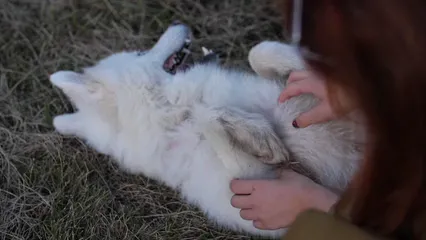
Common Causes of Dog Shaking and Trembling
Cold Environment
When temperatures drop, dogs may shake to generate heat. This response is especially common in smaller breeds. Their low body fat makes them more vulnerable to chilly conditions. Keep an eye out for signs of hypothermia, like lethargy or unusual behavior. To help your dog stay warm, provide a cozy blanket or a Heated Dog Blanket during cold outings. Also, limit their exposure to harsh weather, ensuring they have a warm space indoors.

Excitement
Excitement can often manifest as trembling. Dogs may shake when greeting you after a long day or anticipating playtime. This type of shaking is harmless and usually passes quickly as they calm down. To manage their excitement, try to maintain a relaxed greeting routine. Encouraging calm behavior can help reduce their anticipation and keep the shaking at bay.
Stress and Anxiety
Shaking can also indicate stress or anxiety in dogs. Common triggers include thunderstorms, fireworks, or even trips to the vet. Look for additional signs of anxiety, like panting or hiding. If you notice your dog shaking in stressful situations, consider creating a safe space for them. Calming products, such as Dog Anxiety Relief Wrap or soothing music, can help alleviate their stress. For persistent anxiety, consult your veterinarian for tailored strategies.

Pain and Illness
Pain or illness can lead to trembling in dogs. When your pup is hurt, they may shake as a response to discomfort. Look for signs like lethargy, refusal to eat, or unusual vocalizations. These can indicate pain or distress. A sudden change in behavior might suggest a health issue. If your dog shows these signs alongside shaking, it’s essential to seek veterinary evaluation. A vet can pinpoint the cause of the pain and suggest appropriate treatment options. Don’t wait too long; prompt care can make a significant difference in your dog’s recovery.
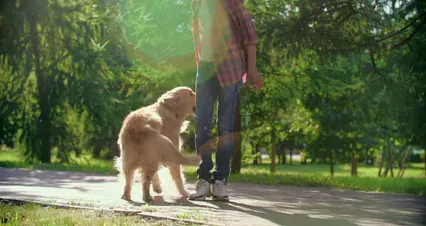
And while waiting for that vet appointment, having a Dog First Aid Kit on hand can offer peace of mind. It’s like having a mini hospital ready to go for those unexpected emergencies!
Poisoning
Ingesting harmful substances can cause your dog to tremble. Common toxins include chocolate, xylitol, and certain plants. If your dog has ingested something toxic, you may notice symptoms like vomiting, diarrhea, or excessive drooling. Shaking can be a sign that their body is reacting negatively. Time is critical in these situations. If you suspect poisoning, contact your veterinarian or an emergency animal clinic immediately. Quick action can prevent severe complications and ensure your furry friend receives the care they need.

Age-Related Issues
As dogs age, shaking may become more common due to muscle weakness or health deterioration. Conditions like arthritis can affect mobility and cause discomfort, leading to trembling. Older dogs are also prone to cognitive dysfunction, which can manifest as disorientation and shaking. Regular veterinary check-ups become increasingly important for senior dogs. Your vet can monitor their health, suggest treatments, and help manage age-related conditions. Keeping your aging pup comfortable and supported ensures they enjoy their golden years to the fullest.
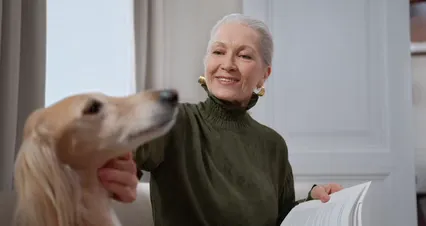
To help your senior dog with comfort, consider a Dog Bed with Orthopedic Support. It’s like a cloud for their tired bones, making sure they get the rest they deserve.
Neurological Disorders
Neurological issues can cause your dog to tremble unexpectedly. Conditions like seizures and generalized tremor syndrome are common culprits. Seizures may result in violent shaking or twitching, often leaving your dog disoriented afterward. Generalized tremor syndrome, often seen in small white breeds, causes shaking without other symptoms.

If you notice unusual shaking, observe your dog for additional signs like confusion or loss of coordination. These symptoms may indicate a serious problem. Seeking immediate veterinary attention is crucial. Early diagnosis can lead to better treatment options and improved outcomes for your furry friend.
Other Causes
While many causes of shaking are well-known, some are less common. Conditions like distemper and ear infections can lead to trembling. Distemper often affects unvaccinated puppies and presents with shaking, fever, and nasal discharge.
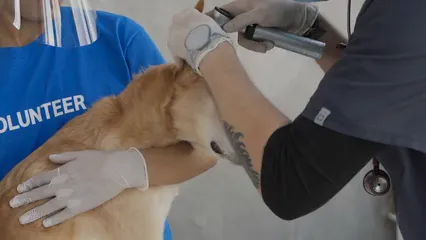
Ear infections might cause your dog to shake their head frequently. If your dog shows signs like shaking accompanied by lethargy or vomiting, consider these as potential issues. Monitoring your dog’s behavior closely can help you catch these concerns early. Always consult your veterinarian if you suspect a serious underlying condition.
How to Help a Shaking Dog
Immediate Actions to Take
When your dog starts shaking, it’s essential to stay calm. First, observe the environment for potential stressors, like loud noises or unfamiliar people. Look for signs of distress, such as panting or whining.

Next, check if your dog appears sick, lethargic, or in pain. Providing comfort is important; wrap them in a warm blanket or hold them close. This can help soothe their anxiety. If the shaking continues or worsens, contact your veterinarian for guidance. Taking these steps can help your dog feel more secure and may ease their discomfort.
If you’re on the go, a Pet Carrier Backpack can be a lifesaver. It allows you to carry your furry friend comfortably while keeping them safe from potential stressors around.

When to See a Vet
If your dog is shaking unexpectedly, it might be time for a veterinary visit. Certain signs can indicate serious health issues that require immediate attention. For example, if your dog trembles and shows additional symptoms like vomiting, lethargy, or difficulty breathing, don’t wait. These could be signs of poisoning or a severe illness.
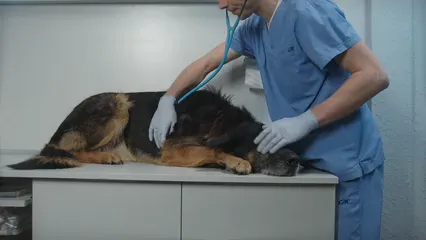
Even if the shaking seems mild, it’s essential not to ignore it. Dogs sometimes mask their pain, making it hard for you to tell if they need help. If your dog shakes for no clear reason or the trembling lasts longer than usual, seek veterinary advice. Prompt action can make a significant difference in their health and comfort.
Conclusion
Understanding why your dog shakes is vital for their health and well-being. Shaking can stem from harmless excitement or be a sign of something more serious. Staying vigilant and observing your dog’s behavior is crucial. If you notice concerning symptoms or prolonged shaking, don’t hesitate to consult your veterinarian. They can provide personalized guidance and care tailored to your dog’s needs. Your furry friend deserves the best, and being proactive can keep them happy and healthy.
If you’re concerned about your dog’s shaking, understanding the causes can help. For more information, check out this article on why your dog might be shaking.
For all the pet owners out there, don’t forget to keep your dog looking fabulous! A Dog T-shirt with Funny Saying can make your pooch the life of the party while keeping them cozy!
Please let us know what you think about our content by leaving a comment down below!
Thank you for reading till here 🙂
All images from Pexels




